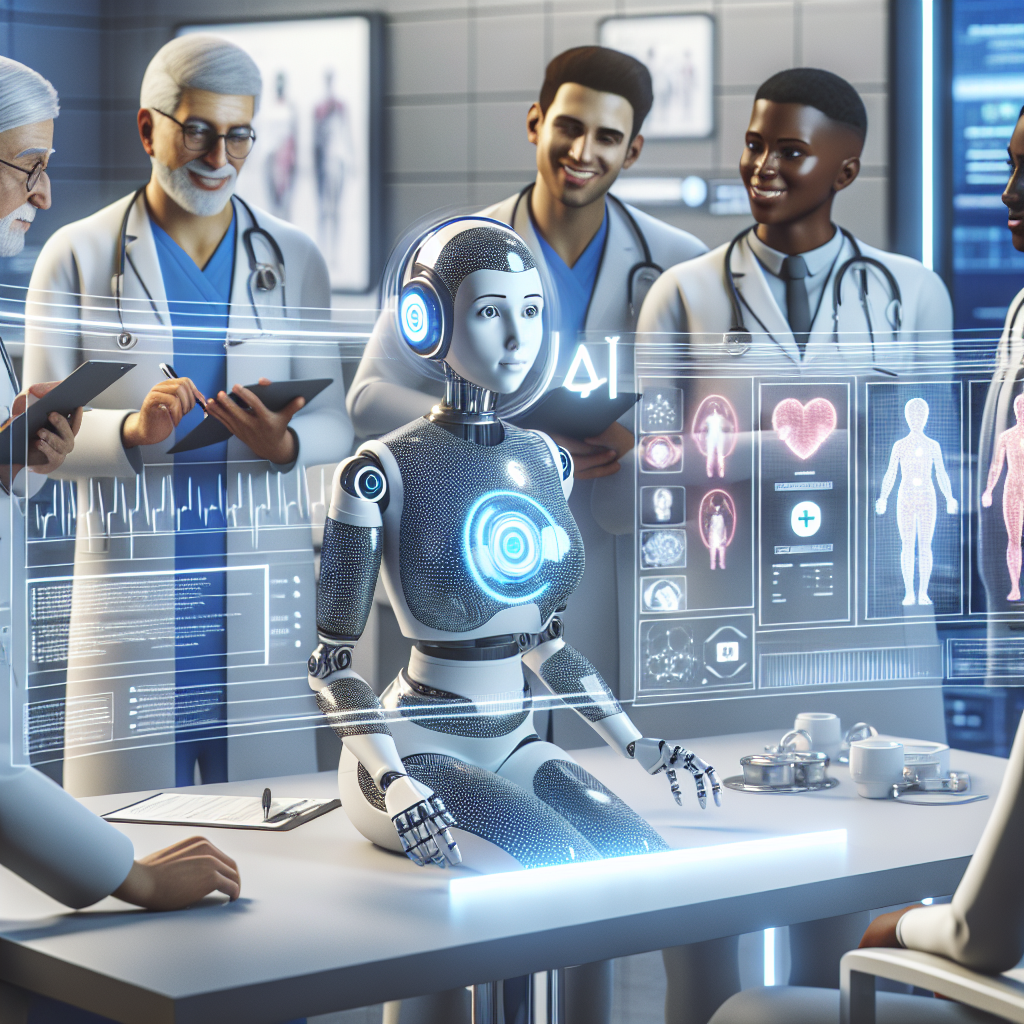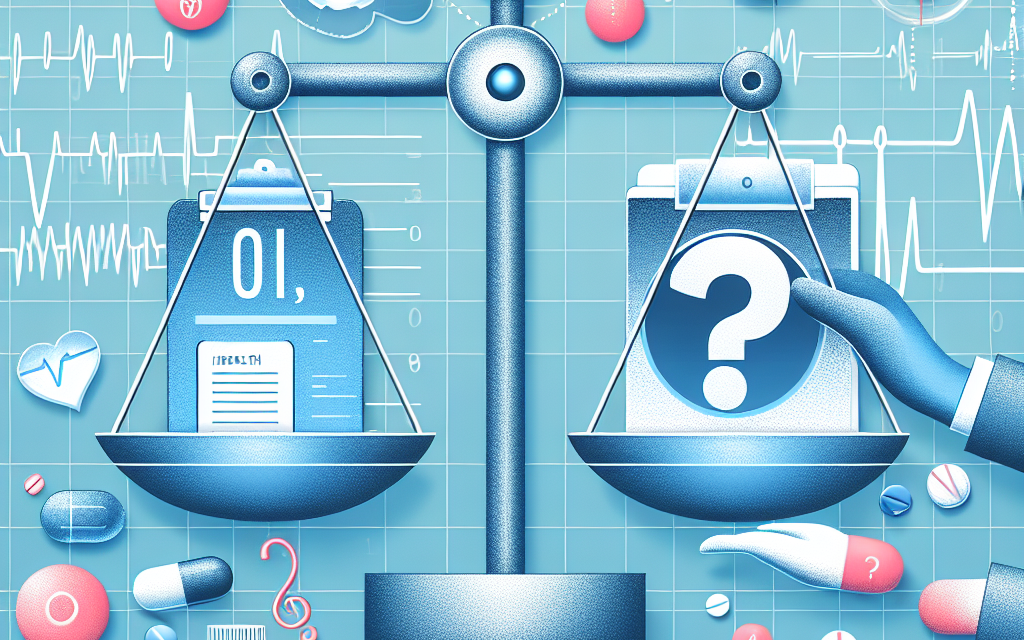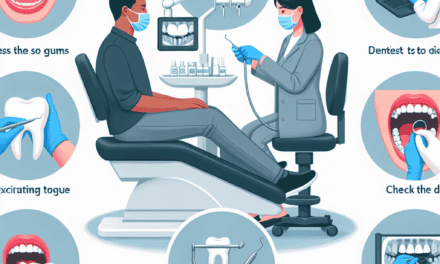Is Perfection Essential for AI in Healthcare?

Artificial Intelligence (AI) is revolutionizing various sectors, and healthcare is no exception. The potential of AI to transform healthcare is immense, from diagnostics to treatment plans and patient management. However, the question arises: Is perfection essential for AI in healthcare? This article delves into this question by exploring the role of AI in healthcare, the challenges it faces, the ethical considerations, the balance between perfection and practicality, and the future outlook of AI in this critical field.
The Role of AI in Healthcare
AI’s role in healthcare is multifaceted, offering solutions that range from administrative efficiencies to clinical decision support. The integration of AI technologies in healthcare systems aims to enhance patient outcomes, reduce costs, and improve the overall quality of care.
One of the primary applications of AI in healthcare is in diagnostics. AI algorithms can analyze medical images with remarkable accuracy, often surpassing human capabilities. For instance, AI systems have been developed to detect abnormalities in radiology images, such as X-rays and MRIs, with high precision. A study published in Nature in 2020 demonstrated that an AI model could outperform radiologists in detecting breast cancer in mammograms, reducing false positives and negatives.
AI is also making strides in personalized medicine. By analyzing vast amounts of data, AI can identify patterns and predict how individual patients will respond to specific treatments. This capability allows for more tailored treatment plans, improving patient outcomes and minimizing adverse effects. For example, IBM’s Watson for Oncology uses AI to provide oncologists with evidence-based treatment options, considering the patient’s unique genetic makeup and medical history.
Moreover, AI is streamlining administrative tasks in healthcare settings. Natural language processing (NLP) algorithms can transcribe and analyze clinical notes, reducing the burden on healthcare professionals and allowing them to focus more on patient care. AI-driven chatbots and virtual assistants are also being used to handle routine inquiries, schedule appointments, and provide patients with information, enhancing the efficiency of healthcare services.
- Diagnostics: AI algorithms analyze medical images with high accuracy.
- Personalized Medicine: AI predicts patient responses to treatments.
- Administrative Efficiency: AI streamlines tasks like transcription and scheduling.
Challenges Faced by AI in Healthcare
Despite its potential, AI in healthcare faces several challenges that hinder its widespread adoption and effectiveness. These challenges range from technical limitations to regulatory and ethical concerns.
One significant challenge is the quality and availability of data. AI systems require large datasets to train and validate their algorithms. However, healthcare data is often fragmented, inconsistent, and stored in disparate systems. This lack of standardized data can lead to biased or inaccurate AI models. Additionally, patient privacy concerns and strict regulations, such as the Health Insurance Portability and Accountability Act (HIPAA) in the United States, limit data sharing and access, further complicating AI development.
Another challenge is the interpretability of AI models. Many AI algorithms, particularly deep learning models, operate as “black boxes,” making it difficult for healthcare professionals to understand how they arrive at specific conclusions. This lack of transparency can hinder trust and acceptance among clinicians, who may be reluctant to rely on AI systems without a clear understanding of their decision-making processes.
Furthermore, the integration of AI into existing healthcare workflows presents logistical challenges. Healthcare systems are often complex and resistant to change, making it difficult to implement new technologies seamlessly. Training healthcare professionals to use AI tools effectively and ensuring interoperability with existing systems are critical steps that require time and resources.
- Data Quality: Fragmented and inconsistent data hinders AI development.
- Interpretability: AI models often lack transparency, affecting trust.
- Integration: Implementing AI in existing workflows is challenging.
Ethical Considerations in AI Healthcare Applications
The use of AI in healthcare raises several ethical considerations that must be addressed to ensure responsible and equitable implementation. These considerations revolve around issues of bias, accountability, and patient autonomy.
Bias in AI algorithms is a significant ethical concern. If the data used to train AI models is biased, the resulting algorithms may perpetuate or even exacerbate existing disparities in healthcare. For example, if an AI system is trained predominantly on data from a specific demographic group, it may not perform as well for patients from underrepresented groups, leading to unequal treatment outcomes. Ensuring diversity and representativeness in training datasets is crucial to mitigate bias and promote fairness.
Accountability is another critical ethical issue. As AI systems become more autonomous, determining who is responsible for errors or adverse outcomes becomes challenging. In healthcare, where decisions can have life-or-death consequences, establishing clear lines of accountability is essential. This includes defining the roles and responsibilities of AI developers, healthcare providers, and regulatory bodies in overseeing AI applications.
Patient autonomy and informed consent are also important ethical considerations. Patients have the right to know how AI systems are being used in their care and to make informed decisions about their treatment options. Ensuring transparency and providing patients with clear information about the role of AI in their healthcare is vital to maintaining trust and respecting patient autonomy.
- Bias: Ensuring diverse datasets to prevent biased AI outcomes.
- Accountability: Defining roles and responsibilities for AI errors.
- Patient Autonomy: Maintaining transparency and informed consent.
Balancing Perfection and Practicality in AI Healthcare
While the pursuit of perfection in AI healthcare applications is admirable, it is essential to balance this with practicality. Striving for perfect AI systems may delay the deployment of beneficial technologies and hinder innovation.
In many cases, AI systems do not need to be perfect to provide significant value. For example, an AI model that improves diagnostic accuracy by even a small percentage can have a substantial impact on patient outcomes. In such cases, the focus should be on continuous improvement and iterative development rather than achieving perfection from the outset.
Moreover, the concept of “good enough” AI is gaining traction in healthcare. This approach emphasizes the importance of deploying AI systems that meet a certain threshold of accuracy and reliability while acknowledging that they may not be flawless. By setting realistic expectations and focusing on incremental improvements, healthcare organizations can leverage AI technologies to enhance patient care without waiting for perfection.
Collaboration between AI developers, healthcare professionals, and regulatory bodies is crucial to achieving this balance. By working together, stakeholders can establish standards and guidelines that ensure the safe and effective use of AI in healthcare while allowing for innovation and adaptation to evolving needs.
- Incremental Improvement: Focusing on continuous development over perfection.
- “Good Enough” AI: Deploying systems that meet reliability thresholds.
- Collaboration: Establishing standards through stakeholder cooperation.
The Future Outlook of AI in Healthcare
The future of AI in healthcare is promising, with ongoing advancements poised to address current challenges and unlock new possibilities. As technology continues to evolve, AI is expected to play an increasingly integral role in healthcare delivery.
One area of potential growth is the integration of AI with other emerging technologies, such as the Internet of Things (IoT) and blockchain. IoT devices can collect real-time health data from patients, which AI systems can analyze to provide personalized insights and recommendations. Blockchain technology can enhance data security and interoperability, facilitating the sharing of healthcare data across different systems while maintaining patient privacy.
AI is also expected to drive advancements in precision medicine. By leveraging genomic data and other biomarkers, AI can help identify novel therapeutic targets and develop more effective treatment strategies. This personalized approach to medicine has the potential to revolutionize how diseases are diagnosed and treated, leading to improved patient outcomes.
Furthermore, AI has the potential to address healthcare disparities by improving access to care in underserved areas. Telemedicine platforms powered by AI can provide remote consultations and diagnostics, reducing the need for patients to travel long distances for medical care. This can be particularly beneficial in rural or low-resource settings where access to healthcare services is limited.
- Integration with IoT and Blockchain: Enhancing data collection and security.
- Precision Medicine: Developing personalized treatment strategies.
- Addressing Disparities: Improving access to care in underserved areas.
Conclusion
In conclusion, while perfection in AI healthcare applications is an ideal goal, it is not essential for the technology to provide significant value. The role of AI in healthcare is multifaceted, offering solutions that enhance diagnostics, personalized medicine, and administrative efficiency. However, challenges such as data quality, interpretability, and ethical considerations must be addressed to ensure responsible implementation.
Balancing perfection with practicality is crucial to leveraging AI’s potential in healthcare. By focusing on incremental improvements and collaboration among stakeholders, AI can be effectively integrated into healthcare systems to improve patient outcomes and address disparities. As technology continues to advance, the future of AI in healthcare holds great promise, with the potential to transform how care is delivered and experienced.





